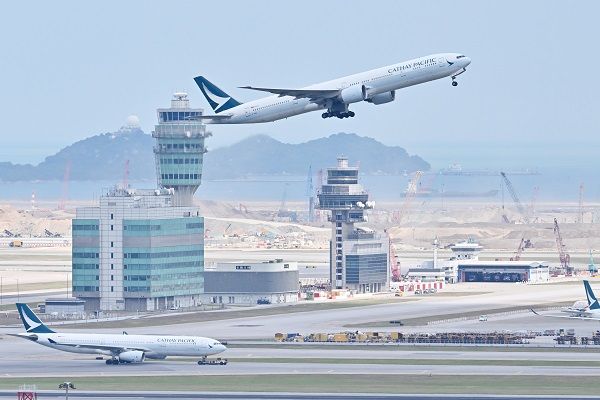With the continued expansion of trade in goods and the rise of e-commerce, air freight services revenue in Hong Kong has seen an overall increase from HK$54.1 billion in 2017 to HK$67.5 billion in 2022.
This represents a compound annual growth rate of 4.5% over the past five years.
The unstable political environment in Hong Kong, which began in March 2019 and deteriorated in June 2019, has severely disrupted public transportation and logistics services.
As the impact of trade conflicts between the United States and the People’s Republic of China became apparent, Hong Kong’s air cargo service revenue dropped significantly. It declined by 10.3%, falling from HK$58.2 billion in 2018 to HK$52.2 billion in 2019.
Subsequently, the Covid-19 outbreak, first reported in the PRC in late 2019, further disrupted the global economy. Both the PRC and Hong Kong were affected, leading to severe reductions in air cargo capacity and congested supply chains.
Airfreight services
Due to the capacity shortage, air cargo operations in Hong Kong faced significant challenges. Consequently, air cargo space costs and service fees rose sharply.
Even so, the revenue from air cargo transportation services in Hong Kong maintained steady growth during the pandemic. It increased from HK$52.2 billion in 2019 to HK$73.6 billion in 2021.
However, as the impact of Covid-19 on the market gradually eased, airfreight services revenue in Hong Kong experienced a slight decline. By 2022, it had dropped to HK$67.5 billion.
According to New Century Logistics, the reduction in market size can be mainly attributed to the decline in air cargo demand caused by global inflation, geopolitical issues between Russia and Ukraine, as well as the local ban on the transshipment of e-cigarettes by road to Hong Kong International Airport.
Despite this, the size of the air cargo air freight services market in Hong Kong remains larger than pre-pandemic levels.
Outlook
Looking ahead, Hong Kong is expected to remain a key gateway for international air cargo. This is attributed to its free trade policy, well-established support services, efficient customs procedures, and close proximity to mainland China.
Moreover, the planned completion of the three-runway system and the international airport by 2024 is anticipated to provide sufficient capacity for freight movement in the coming years.
As a result, air freight service revenues in Hong Kong are projected to grow steadily. With the gradual recovery of freight trade, revenues are expected to rise from HK$68.5 billion in 2023 to HK$78.2 billion in 2027, reflecting a compound annual growth rate of 3.4%.

